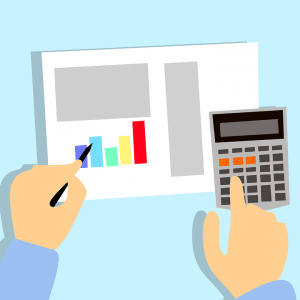
What is a budget?

A budget is a written plan that helps you know how much money you have coming in, what you need to spend it on and how much can be saved. It helps you keep track your spending patterns. Making a list of all your expenses, you can then compare it against your cash inflows.
Budgeting for daily expenses is an essential part of one life cycle. Once you get used to budgeting as a tool, you would find it useful to manage your own financial situation.

In your budget you capture:
o Your income – how much money you have coming in and from where it comes (for example, wages, maintenance, allowances, interests on your investments or your pension).
o Your expenses – how much money you spend and on what is your major spend (for example, on utility bills, food and school fees, house loans.)
Budgeting Means …
… choices you make and priorities that you identify.
It is important that you take charge of your money so that you
- get out of the trap of living from one wage to the next, or one social benefit to the next, or one pension cheque to the next,
- ease money stress and stay on top of your bills,
- pay for the things you need such as food and your current bills,
- direct your money to where it matters most by prioritising,
- prepare for emergencies and unplanned expenses,
- save for something special,
- set goals so you can enjoy more of the good things in life,
- become aware of bad spending habits,
- will provide for more disposable income,
- pave the way for financial growth (investments),
- make sure that expenditure does not exceed income,
- become aware of how much cash inflow you can count on,
- take the necessary steps (a part-time job if needs be) to increase cash inflow.
Conditions change during the year, and unforeseen things happen. For example, the car / white goods / the laptop can break down any time. If unprepared, an unexpected urgent expense will make you feel nervous, perplexed, and tends to blow all the budget plans but an emergency fund is designed specifically to address future unexpected emergencies that may arise. Therefore, do not forget to include your rainy day fund. An automatic deposit can be set up from the salary account to the emergency fund.


